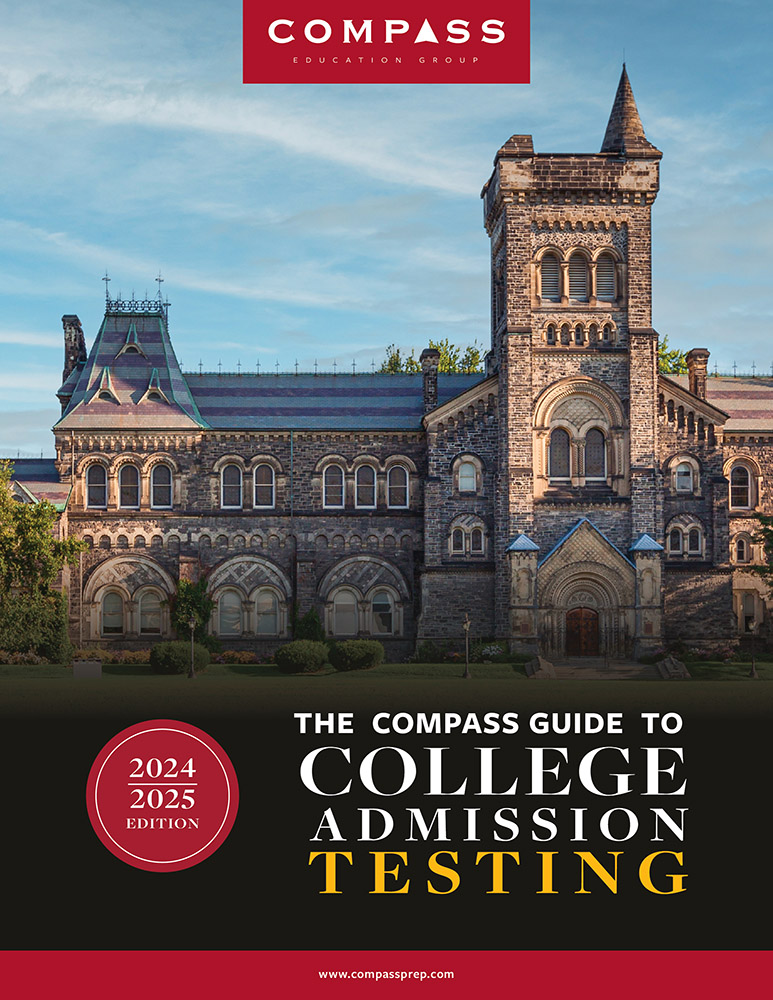
In a previous post, we explained that very little prior science knowledge is needed to do well on the ACT, which includes a Science section not seen on the SAT.
After a review of a few more recent official ACT practice tests, we took an inventory of some of the scientific concepts.
While it’s still true that you don’t need to be a science prodigy to excel on the ACT, the test has been evolving. Some basic science knowledge can help a student on the ACT Science test.
Keep in mind that any high school student who has taken standard, high-school level science classes (and has paid attention in class) should have learned the scientific principles tested on the ACT. The test is not looking for science whizzes.
To illustrate, in the following question some knowledge of physics may come in handy, but isn’t necessary. The student is first presented with background information about the locomotion of octopuses.
Passage I
The unique biomechanical structure of the octopus enables it to use varied methods of locomotion. Some of the most commonly observed methods are described below.
- Bipedal walk/run: the octopus uses a single pair of arms in an alternating pushing/rolling motion to move along the bottom.
- Crawl: using more than two arms, the octopus uses the sucker edges to push/pull along the bottom.
- Jet propulsion: the octopus fills its mantle cavity with water, and then quickly expels it out through a funnel. The arms are commonly held tightly together, trailing behind the head.
- Swim: the octopus fills its mantle cavity with water, and then quickly expels it out through a funnel (similar to jet propulsion). However, swimming may incorporate use of the body and arms in wide, undulating motions.
Next, the student is presented with a figure that maps the octopus’s speed when using the various methods of locomotion. Then, the student is asked the following:
6. Which of the following statements best explains why the speed of the octopus decreases when transitioning from jet propulsion to swimming? During jet propulsion, the cross-sectional area of the octopus’s body is:
F. larger, which causes the opposing drag force on the octopus to decrease.
G. larger, which causes the opposing drag force on the octopus to increase.
H. smaller, which causes the opposing drag force on the octopus to decrease.
J. smaller, which causes the opposing drag force on the octopus to increase.
If a student knows exactly what “drag force” means, she won’t have any trouble answering this question. At the same time, test-takers who have never even heard the term “drag force” should be able to make an intelligent guess based on context clues.
Can you?
The question tells us that the octopus moves faster when using jet propulsion, since its speed decreases when it swims. Based on the information given, we know that the octopus will hold its arms tightly together during jet propulsion. Logically, the octopus’s cross sectional area will be smaller than when the arms move in “wide, undulating motions” as in swimming. We can narrow down our answer choices to two: H and J.
With these remaining choices, we need to decide “would a smaller area create more drag force or less?” Or we could think of it this way, “Would the speed of the octopus be greater if we increase or decrease drag force?” Many students would probably associate “drag” with slowing down; hence the less “drag,” the faster you go. So the answer is H.
The question above illustrates how prior knowledge of a concept (drag force) could probably help a student answer a question more quickly and confidently, but even without prior knowledge, a student could arrive at the correct answer without too much trouble.
Other scientific concepts we’ve seen on recent tests include: basic genetics, stoichiometry (much scarier than it sounds), and electromagnetism.
Most current high school students feel very comfortable with these concepts. Even to those who haven’t studied science in years, many concepts will at least sound familiar. The important thing to remember is that background science knowledge remains inessential to doing well on the ACT Science test, but a little review doesn’t hurt!
Click to learn more about our ACT prep services and contact us today!

